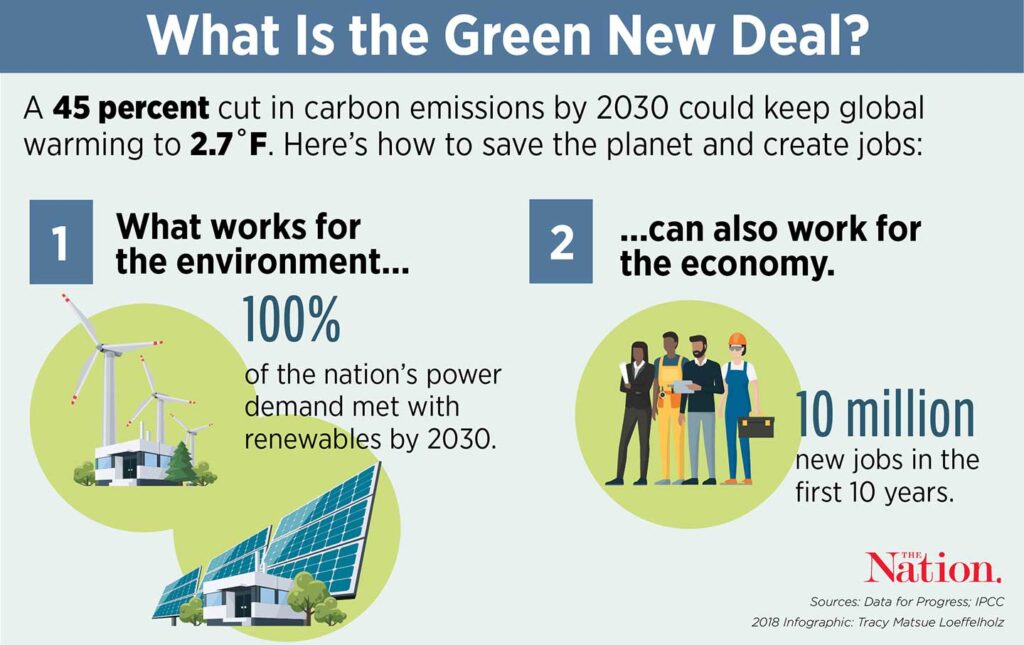The Green New Deal lists copious problems as well as solutions to confront not only environmental emergencies but a decreasing social mobility, as well as nationwide injustice and poverty. The proposed legislation is clear and inclusive of many issues and addresses the need to keep global temperatures below 1.5 degrees Celsius. While sadly considered controversial to the Republican Party and Conservatives, it would make significant national and global progress regarding sustainability to the environment and society. There have been other proposals as well outside of the United States, yet some scholars think it is more beneficial to analyze their short sightings and negating their effects without offering a better solution or realizing that some steps are better then none. Sustainability and climate change is not only a challenging conversation, it has been a challenge to implement real change with conservative political parties arguing that it is a hoax or are more concerned with lining their pockets then saving the planet. Olivia Bina and Francesco La Camera’s journal article, “Promise and Shortcomings of a Green Turn in Recent Policy Responses to the “Double Crisis” aims to critique recent proposals as short sighted and not effective. This type of analysis can lead to defeatism, and in a time where dire change is needed the goal should be to inspire steps to be taken then criticizing them before they even are in motion.
The double crisis is in fact a crisis. It will not be solved overnight but it will also never be solved without real conversation and implementation. In a perfect world, regarding The Green New Deal proposed by Alexandria Ocasio-Cortez in the US House of Representatives, real impactful change would be set into motion. There is even proof of its efficacy seeing as how The New Deal created the greatest Middle-Class growth during WWII. By taking this foundation and applying it in a “green” way, as well as a “just” way, we would see a profound difference.
While I agree with Bina and Francesco that, “Progress continues to fall short of what is deemed necessary.” This, in my opinion has nothing to do with the strategies discussed and offered but due to the interference of opposition from fiscal conservatives and racists. Additionally, while certainly market and environmental regulations will not completely end our worries on climate change and social inequality, it will however be far removed from where we are now, and will provide real, positive change on a scale unseen since WWII. While at least 6 international-scale responses are discussed in Bina and Francesco’s article, I am mostly concerned about The Green New Deal, one because if real change takes place the US will have to be the leader of the movement, and 2, I have a more detailed understanding of its strategies. Lastly if it did not cast the ability for real change, there would not be so much opposition towards it from opposing political parties.
Solving the “Double Crisis” will take time. As often argued, we do not have that much time when it comes to climate change, yet we also should not take any more time to give human beings equal justice and opportunity for a good life either. The US will need to lead the world on climate change initiatives and The Green New Deal must be implemented. That may not come without new leadership, but it will never come if we criticize every way it won’t be good enough instead of taking the first step today. Complicated problems take complicated responses and sometimes you must take the first step and work out the “kinks” along the way, but never getting started is the worst solution of all.



